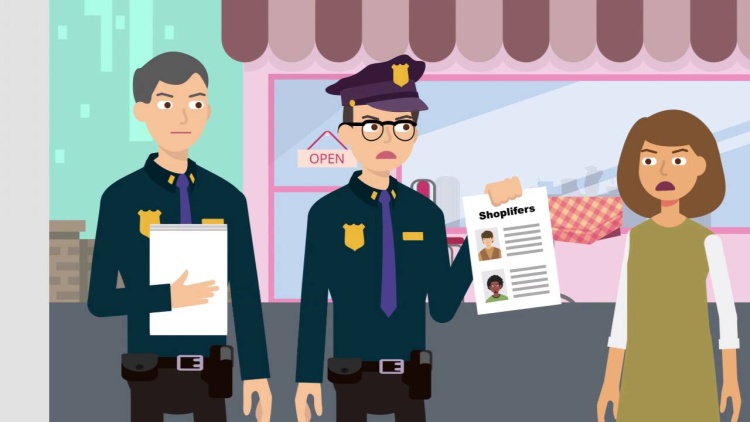Paul v. Davis
United States Supreme Court
424 U.S. 693 (1976)
- Written by Susie Cowen, JD
Facts
Mr. Paul (defendant), the Chief of Police of the Louisville, Kentucky, and Mr. McDaniel (defendant), the Chief of Police of the Jefferson County, Kentucky, combined efforts to alert local area merchants about possible shoplifters who might be operating during the Christmas season. To this end, Paul and McDaniel distributed a flyer to approximately 800 merchants in the Louisville metropolitan area containing the photographs and names of persons who, during the previous two years, had been arrested or active in various criminal fields in high density shopping areas. The flyer identified the individuals named and photographed as “active shoplifters.” Edward Charles Davis III (plaintiff) was one of the individuals identified in the flyer. He sued Paul and McDaniel, arguing that the flyer violated his due process rights to the extent that the “active shoplifter” designation in the flyer deprived him of his liberty. Specifically, Davis argued that the designation would inhibit him from entering business establishments and impair his future employment opportunities. The United States Supreme Court granted certiorari to consider whether Davis’s charge that the defendants’ defamation of him, standing alone and apart from any other governmental action, stated a claim for relief under the Fourteenth Amendment.
Rule of Law
Issue
Holding and Reasoning (Rehnquist, J.)
Dissent (Brennan, J.)
What to do next…
Here's why 907,000 law students have relied on our case briefs:
- Written by law professors and practitioners, not other law students. 47,100 briefs, keyed to 996 casebooks. Top-notch customer support.
- The right amount of information, includes the facts, issues, rule of law, holding and reasoning, and any concurrences and dissents.
- Access in your classes, works on your mobile and tablet. Massive library of related video lessons and high quality multiple-choice questions.
- Easy to use, uniform format for every case brief. Written in plain English, not in legalese. Our briefs summarize and simplify; they don’t just repeat the court’s language.





